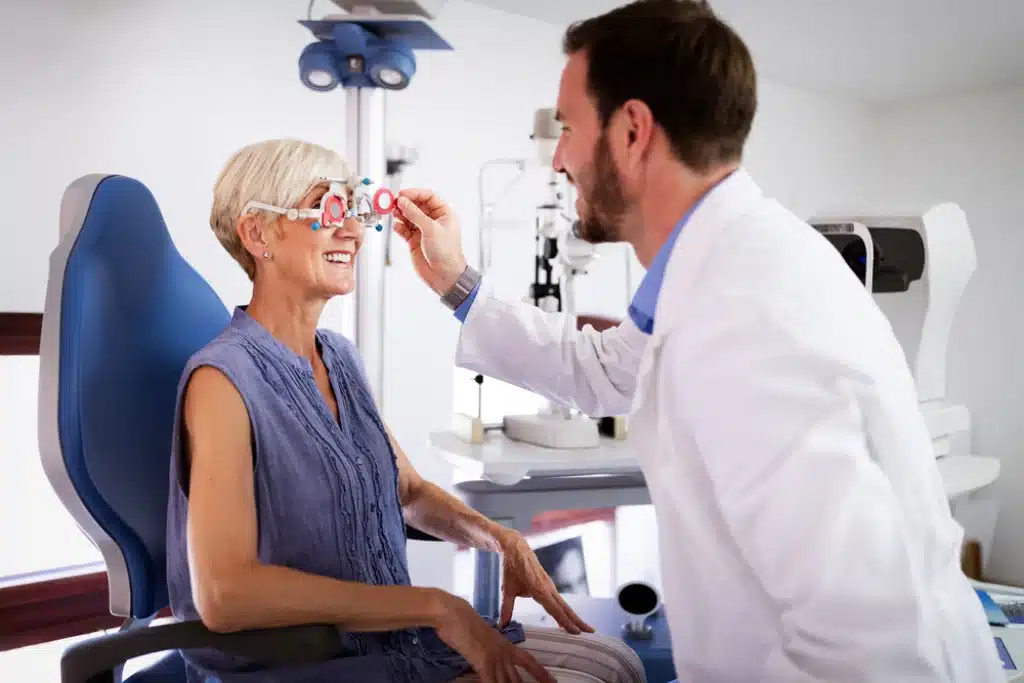Medically Reviewed by: Edward C. Wade, M.D., F.A.C.S.
Getting to Know the Facts About LASIK Eye Surgery
When you have been dealing with imperfect vision or vision loss for a long period of time, you start to find the idea of wearing contacts or glasses frustrating. In the past, there might have been no other solution to your struggles other than to continue wearing corrective lenses.
Now, surgical options such as LASIK surgery have changed the eye care and vision care game. Before you jump right into a surgical procedure, though, get all of the facts about LASIK surgery and what you can expect. Then, you will be sure that you are making the right decision for you and your eye health.
What Exactly Is LASIK Surgery?
Many people have heard of LASIK surgery, though very few actually know what the term actually means or how the procedure works. LASIK stands for laser-assisted in situ keratomileusis. In essence, this indicates that it is a form of laser surgery on the cornea of the eye. LASIK is a procedure that involves cutting into the cornea and creating a flap. This flap is folded back and then corneal tissue is removed. The idea behind removing a portion of the cornea is that removing corneal tissue will allow the remaining tissue of the cornea to better reflect light and therefore improve a person’s vision.
Who Is a Good Fit for LASIK?
Not every person with eye troubles will be a good candidate for LASIK surgery. This is because LASIK surgery is meant to correct vision problems in people with otherwise healthy eyes.
As such, a person who has damaged tissue (such as scarring) in their cornea, or other eye diseases or conditions, would not be ideal candidates for LASIK eye surgery.
This is because the procedure could cause problems with those other conditions, or a person might not be able to enjoy the full vision benefits of the surgical procedure because of those conditions.
Will You Still Need to Wear Corrective Lenses?
Many people want to get LASIK surgery in order to avoid wearing their corrective lenses completely. While this is a possible result of the LASIK surgery procedure, it is not a guaranteed outcome.
LASIK surgery will improve a person’s vision (when the procedure is successful), and they will likely enjoy far better vision even without their glasses or contacts. They could, however, still find that they need those corrective lenses occasionally for certain activities. Another possibility is that they will still need corrective lenses as frequently as before, but with a lesser degree of correction.
Now that you know more about the LASIK eye surgery procedure, you can decide for yourself if this surgery is right for you. Once you make the decision, you can contact your eye surgeon and get the process started.
Financing Options Available
Apply today to find a financing option that meets your needs.
Our Locations
Houston/Bellaire
6565 W. Loop S., Suite 650Bellaire, TX 77401
Medical Office:
713-797-1010
Medical Fax:
713-357-7276
LASIK/Near Vision:
Office: 713-395-1515
Fax: 713-357-7278
Pasadena
4415 Crenshaw RoadPasadena, TX 77504
Medical Office:
281-977-8800
Medical Fax:
281-977-8877
Sugar Land
15200 S.W. Freeway, Suite 130Sugar Land, TX 77478
Medical Office:
281-277-1010
Medical Fax:
281-277-4504
Clear Lake
455 E. Medical Center Blvd., Suite 110Webster, TX 77598
Medical Office:
281-332-1397
Medical Fax:
281-282-9152
Katy
Greenhouse Medical Plaza2051 Greenhouse Road, Suite 110
Houston, TX 77084
Medical Office:
346-547-7070
Medical Fax:
281-214-2971
The Woodlands/Conroe
100 Medical Center Blvd., Suite 118Conroe, TX 77304
Medical Office:
936-647-1610
Medical Fax:
936-647-1620


